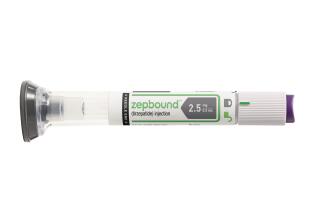Diet drug Qnexa should be approved, panel says
- Share via
The diet drug Qnexa has cleared a major hurdle toward eventual Food and Drug Administration approval. An independent panel of medical experts who advise the agency voted Wednesday that Qnexa’s significant weight-loss benefit outweighed its potential risks.
The hearing was held in Silver Spring, Md. The surprisingly positive 20-2 vote in favor of approval moves the decision on Qnexa into the hands of the FDA, which will issue a final ruling later this year.
The agency typically follows the recommendations of an advisory committee but is not bound by it. If approved, as is now expected, Qnexa would be the first prescription diet drug to reach the market since 1999. The drug, made by Vivus Inc.of Mountain View, Calif., is a combination of the anticonvulsant topiramate and the appetite suppressant phentermine.
Studies show the medications produced an average of about 10% loss of body weight in the first two years of use. “The benefits of that degree of weight loss have been clear and unambiguous,” said Dr. Stephen Smith, scientific director at the Translational Research Institute in Orlando, Fla., who was not involved in the vote. “We fully understand the topiramate risk, and the phentermine risk we have a pretty good handle on as well.” The committee’s vote, he said, “recognizes that doing nothing in obesity has it consequences.”
More than 35% of American adults are obese and another third are overweight. Only one prescription diet drug is available in the United States. However, both topirimate and phentermine have side effects. Last year, the FDA reclassified topiramate as a class D drug, meaning it carries risks to a fetus but may still be acceptable for use in pregnant women despite the risks.
Clinical trials on Qnexa also showed an increased risk of birth defects -- typically cleft lip -- in women who became pregnant on the drug. The study also found that users have an increase in heart rate. These side effects led to a thumbs-down vote when Qnexa came before the FDA advisory committee in 2010. The FDA subsequently denied approval in October 2010, citing potential safety problems.
But officials for Vivus Inc. have proposed a tightly controlled system for prescribing Qnexa to prevent birth defects, including healthcare provider training, monthly pregnancy testing, a patient medication guide and limits on which pharmacies can dispense the medication, such as registered mail-order pharmacies.
“We will know who the prescribers are. We will know who has been trained,” said Dr. Barbara Troupin, senior director of global medical affairs for Vivus. “We are confident the Qnexa [risk management program] balances the safeguards while allowing access for appropriate patients.” Moreover, the panel strongly encouraged that Vivus conduct a post-marketing study to better understand the potential cardiovascular side effects of Qnexa.
Follow me: twitter.com/LATShariRoan






